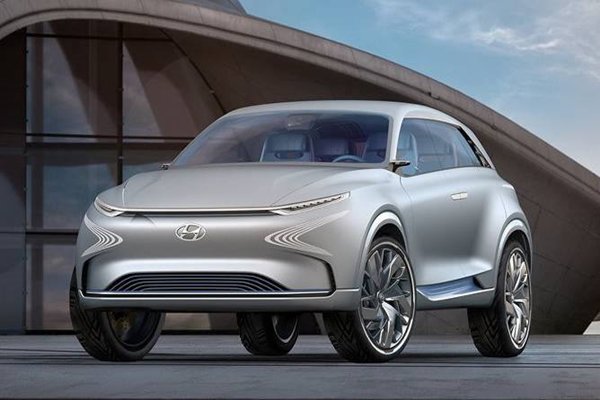Hyundai Motor Company has set price of 2nd generation FCEV (Fuel Cell Electric Vehicle), which will be introduced next month, at $62,712 (70 million KRW). However one will be able to purchase it at $33,596 (37.5 million KRW) by receiving national subsidy from South Korean Government. This 2nd generation FCEV can drive for about 550km with just single charge and it is the first South Korean car to have wireless automatic parking system. It is seen as a car that is more advanced in many aspects such as semi-self-driving technology, driving performance, and competitive edge in production cost than Toyota’s Mirai, which is its only competition so far.
According to industries on the 24th, Hyundai Motor Company is going to introduce 2nd generation FCEV globally next month.
It is likely that Hyundai Motor Company will start selling 2nd generation FCEV in early 2018 when 2018 Pyeongchang Winter Olympics is going to be held. Hyundai Motor Company has set price of 2nd generation FCEV at $62,712 (70 million KRW). However one will be able to purchase it at $33,596 (37.5 million KRW) by receiving national subsidy for FCEV ($24,637 (27.5 million KRW)) and subsidy from local government body (between $4,032 and $4,479 (4.5 million KRW and 5 million KRW)). This 2nd generation FCEV’s mileage and performance have been improved and its price is 20% lower than Hyundai Motor Company’s 1st generation fuel cell vehicle called ‘Tucson ix ($76,150 (85 million KRW))’.
Mileage and performance of variety of electronic safety devices boast a world-class level. By developing MEA (Membrane Electrode Assembly) and metallic separator, which have the highest level of difficulty in technology out of FCEV’s major technologies (MEA, separator, GDL (Gas Diffusion Layer)), there is a high chance that Hyundai Motor Company’s competitive edge in price will slowly increase due to mass-production.

Electronic safety devices such as ADAS (Advanced Driver Assistant Systems) have also been improved greatly. This model has ASCC (Advanced Smart Cruise Control), LKAS (Lane Keeping Assist System), HAD (Highway Driving Assist) that is combined with navigation information, and AEB (Autonomous Emergency Braking). It also has wireless automatic parking system and includes advanced technologies that are level 2 or above in standards for self-driving technologies.
2nd generation FCEV can drive for about 550km (based on its self-test) with just single charge which is longer than Mirai’s range at 502km (312 miles) that is officially approved by United States EPA (Environmental Protection Agency). It has 100kW fuel cell stack and high-output (120kW) electric motor. Capacity of its lithium-ion batter is about 2kWh.
Although electric motor can be operated as electricity that is produced from hydrogen fuel cell goes through a lithium-ion battery, Hyundai Motor Company’s 2nd generation FCEV is designed so that its motor can be operated without having electricity go through a battery which increases energy efficiency.
This 2nd generation FCEV is made with Hyundai Motor Company’s first FCEV platform. Length of this car is 4,800mm which is similar to Santa Fe. Its door handle is designed so that it remains hidden in order to reduce air resistance and pops out when a driver approaches with a Smart Key. It has 19-inch tires (245,45R,19) from Hankook Tire.
It is a five-seater car and has 7-inch dashboard and 12.3-inch display at the front of a car and in the middle of a car respectively. Although its design is similar to a concept car that is introduced at Seoul Motor Show, which was held in March, it has large grille at the front of a car. Exterior of this car is made with carbon fiber.
“Because there is a high chance that national subsidy for FCEV will be maintained next year, it is likely that one will be able to purchase it for $33,596 (37.5 million KRW).” said a representative of an industry. “Hyundai Motor Company’s competitive edge in price will continue to go up in the future as it was able to internalize major technologies of FCEV and is able to mass-produce its own products in the future.”
Staff Reporter Park, Taejoon | gaius@etnews.com